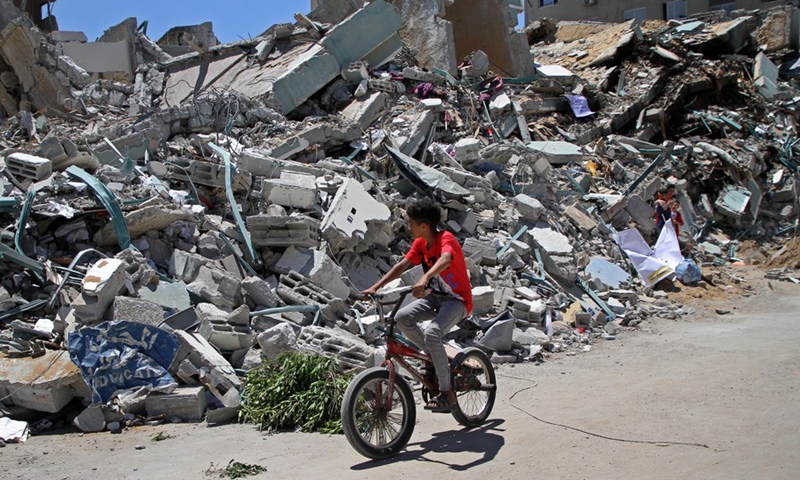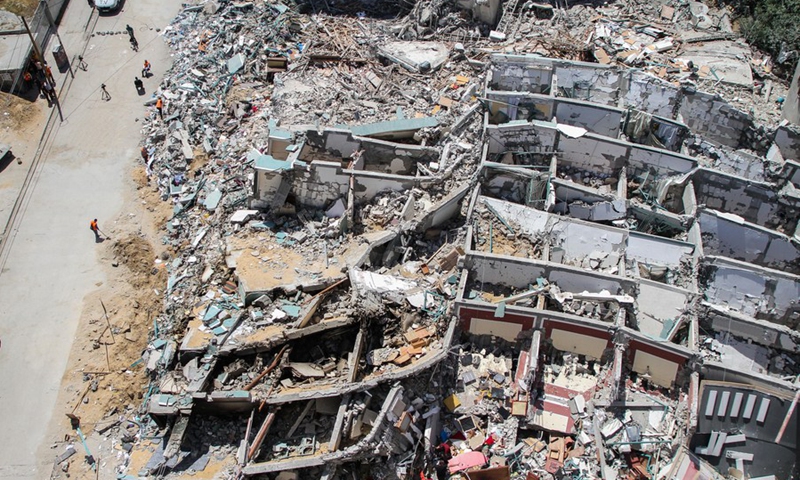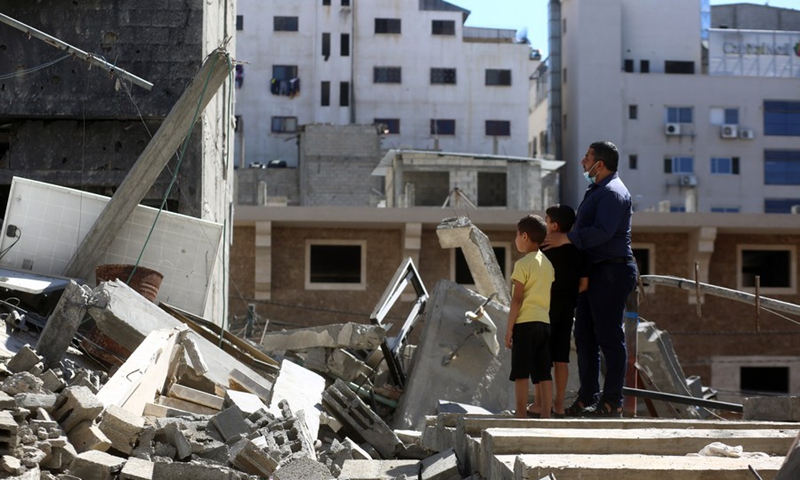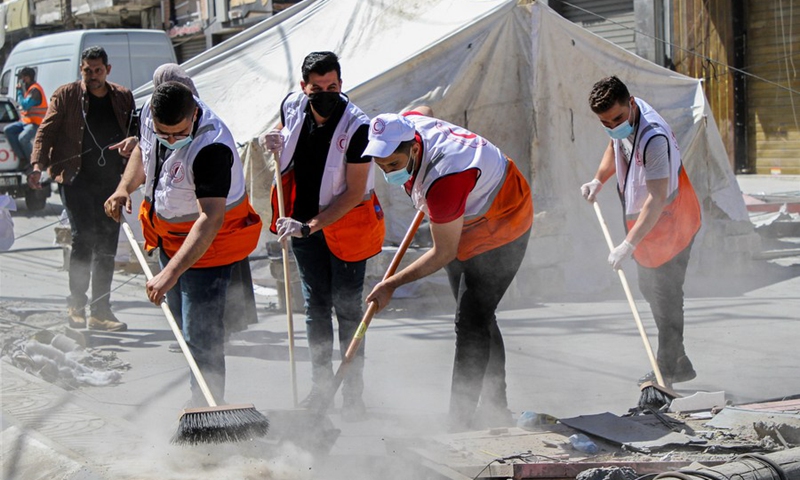
A Palestinian boy rides his bicycle past the rubble of Jala Tower destroyed during an Israeli air strike in Gaza City, May 23, 2021.(Photo: Xinhua)

Photo taken on May 23, 2021 shows an overview of the rubble of Jala Tower destroyed during an Israeli air strike in Gaza City. (Photo: Xinhua)

Palestinians stand on the rubble of their houses destroyed during an Israeli air strike in Gaza City, May 23, 2021.(Photo: Xinhua)

Volunteers clean ruins of destroyed buildings in the Gaza Strip on May 23, 2021.(Photo: Xinhua)
Mujahid al-Turk, a Palestinian man from Gaza City, had never imagined that the first call he received on the first day of Eid al-Fitr festival was from an Israeli army officer, who asked him to immediately evacuate his home that would potentially be hit in the following airstrike.
"At first, I thought that was a joke from my friend, but after a few seconds, I sensed his accent in Arabic," the 42-year-old father of six told Xinhua.
"I did not know what to do at that time, whether I should obey him or stall for time so that more people can evacuate," he recalled.
In a bid to win more time, al-Turk kept asking the officer about what pushed the Israel Defense Forces (IDF) to destroy the residential building.
But his pleas fell on deaf ears.
"All my attempts were unsuccessful and the officer demanded that I expedite the evacuation of my family," al-Turk said.
It was then that al-Turk realized he and his 40-member family were racing against time and death. On May 13, the Israeli army bombarded the building adjacent to al-Turk's house, which also led to a partial collapse of the four-storey building where the al-Turk family resided.
"I felt weak and terrified as we could have been added to the long list of victims," he told Xinhua, his voice breaking.
Al-Turk was not the only Gazan resident who had received such a phone call from the Israeli army. Salem Helles, owner of another building, had also received a similar call from the IDF that warned him about the upcoming bombing of his building in al-Rimal neighborhood.
"I was shocked and afraid," Helles, 30, told Xinhua, saying he tried to inquire about the reason given that his building did not contain any political or military offices. Known as al-Walid building, it was built in 1990s after Helles' father came back from the United Arab Emirates where he had worked.
But his requests were largely unanswered. The building was soon totally destroyed.
"I heard the sound of the explosion," said Helles. "At that time, I felt sorry for my father who had spent so many years working to build that building."
Al-Walid building is one of the 2,000 residential buildings that were destroyed in Gaza during the 11 days of conflict between Israel and Palestinian militant groups.
According to the Ministry of Works run by Hamas, residents of those buildings had been warned that they would need to evacuate before their buildings were targeted by the Israeli warplanes.
The round of the heaviest fighting since 2014 between Israel and the Hamas-led militant groups began on May 10, after Gazan militants fired barrages of rockets at Israel in protest of the Israeli measures in East Jerusalem. During the Israeli airstrikes, 248 Palestinians were killed, including 66 children and 39 women, and 1,900 others wounded.
On the Israeli side, 12 people lost their lives, including two children, and more than 300 were wounded.
Al-Turk said he will rebuild his house as he works as a security guard at a local bank that would help him save more money for this goal.
"I am sure the current situation will not remain long, as most of the international institutions and Arab countries have expressed their solidarity with us. We will continue our lives under the assistance of the international society," he noted.







